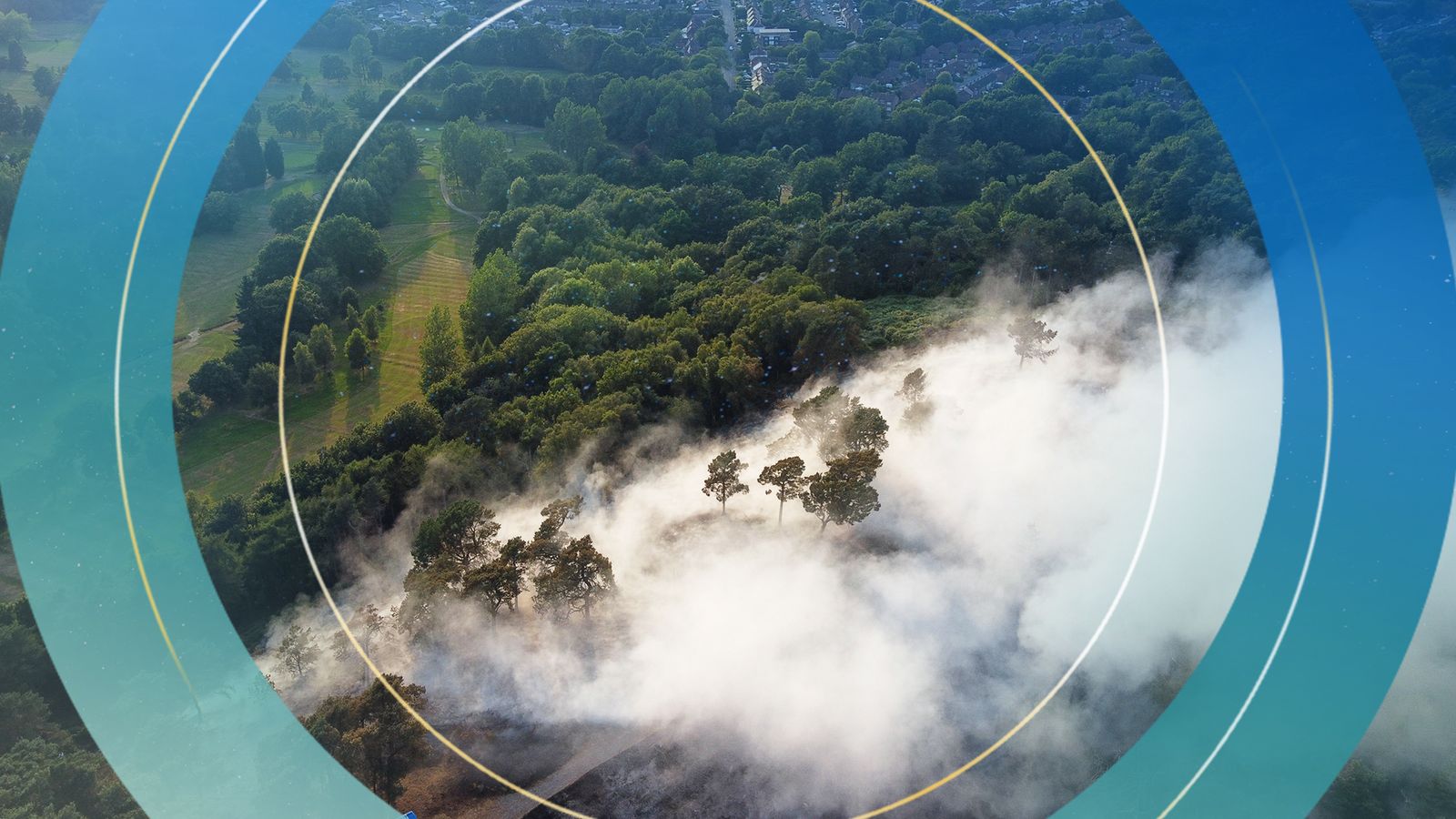[ad_1]

New Zealand has unveiled plans to tax the burps from cow and sheep in a bid to tackle one of the country’s biggest sources of greenhouse gases.
The proposal would make the country the first to charge farmers for the gases belched out by their livestock.
New Zealand is home to just 5 million people, but around 10 million cattle and 26 million sheep.
Although nearly half its total greenhouse gas emissions come from farming, mainly in the form of methane.
Agricultural emissions have previously been exempted from the country’s emissions trading scheme, drawing criticism of the government’s efforts to slow global heating.
Read more: Designers of cow face mask that neutralises emissions from belching win £50k Prince Charles prize
Methane has more than 80 times the warming power of carbon dioxide during its first 20 years in the atmosphere – so cutting it is a powerful way to slow warming in the short term.
More than 85% of New Zealand’s total methane emissions come from two agricultural sources: animal stomachs and animal manure, with the former accounting for 97% of that total.
In cows, most (95%) of the methane is exhaled, while 5% is emitted via flatulence.
Under the draft plan, drawn up by government and farming representatives, farmers will have to pay for their
gas emissions from 2025.
“There is no question that we need to cut the amount of methane we are putting into the atmosphere, and an effective
emissions pricing system for agriculture will play a key part in how we achieve that,” Climate Change Minister James Shaw said.
The proposal includes incentives for farmers who reduce emissions through feed additives, while on-farm forestry can be
used to offset emissions. Revenue from the scheme will be invested in research, development and advisory services for
farmers.
“Our recommendations enable sustainable food and fibre production for future generations while playing a fair part in
meeting our country’s climate commitments,” said Michael Ahie, chair of the primary sector partnership, He Waka Eke Noa.
The proposal would potentially be the biggest regulatory disruption to farming since the removal of agricultural
subsidies in the 1980s, said Susan Kilsby, agricultural economist at ANZ Bank.
Watch the Daily Climate Show at 3.30pm Monday to Friday on Sky News, the Sky News website and app, on YouTube and Twitter.
The show investigates how global warming is changing our landscape and highlights solutions to the crisis.
[ad_2]







